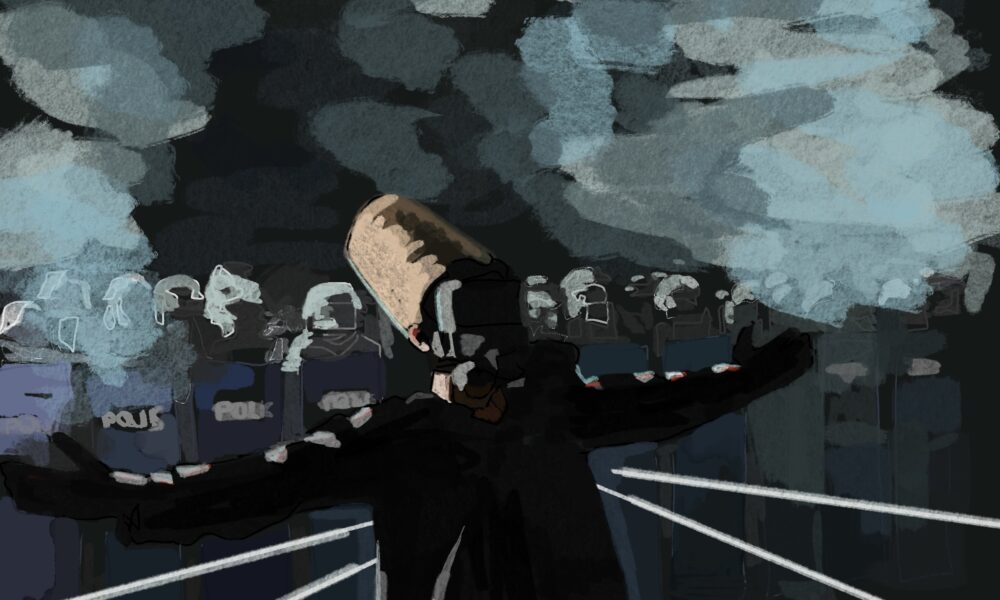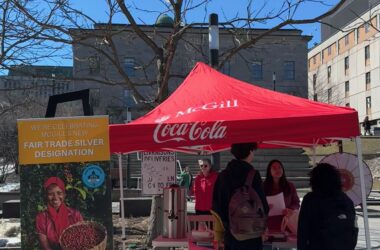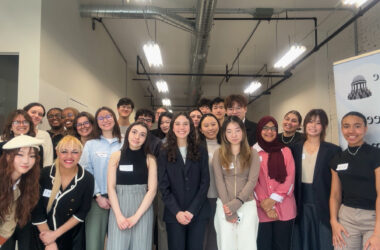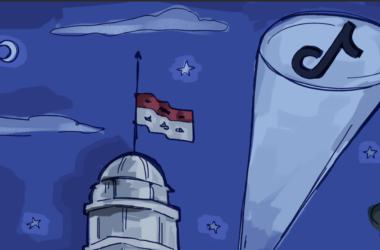Some mornings begin with coffee; others begin with the news that a friend from high school is in jail. As an international student, life abroad feels like a dream—until reality hits and helplessness kicks in. Students, journalists, and lawyers are behind bars—and so is Ekrem Imamoglu, Türkiye’s strongest opposition leader.
On March 19, police detained Imamoglu on corruption charges. The day before, Istanbul University abruptly annulled his university diploma—along with the degrees of countless others—disqualifying him from a presidential run. The decision came just days before he was expected to announce his candidacy. He is now being held in a high-security prison on the outskirts of Istanbul.
For many students of Turkish descent, watching the events unfold from abroad serves as a reminder of the ongoing reality of political suppression.
“In Turkey, nothing is just administrative or procedural anymore; everything is political, and it’s all controlled by the state,” Ipek Peya, U2 Arts, wrote in a statement to The Tribune. “I know some people avoid calling it political, but I think that’s exactly what it is. And it’s important to say it out loud.”
In response to the political crackdown on opposition figures, Türkiye is witnessing its largest wave of protests in over a decade, with tens of thousands flooding the streets. This uprising is not merely a reaction to a single arrest but a collective act of defiance against intimidation and authoritarian drift, and a demand for democracy.
“I don’t think these protests are [happening] because Imamoglu got arrested,” Emir Sahin, U3 Arts, said in an interview with The Tribune. “It’s just that the Turkish people want to make sure that there’s a rule of law that is objective to both sides.”
Recep Tayyip Erdogan, president of Türkiye, condemns the protests as “street terrorism” and “a movement of violence,” but it is the protestors who face violence. Citizens are routinely targeted with water cannons, tear gas, pepper spray, and plastic bullets—sometimes fired at close range at the face and upper body.
“It’s one thing to see these things on the news, but when it happens to someone even slightly connected to you, it hits completely differently,” Peya wrote. “It makes everything feel way more real—and honestly, way more frightening.”
A U2 Arts student who wished to remain anonymous described the current movement as a breaking point, saying the silence surrounding political repression can no longer continue.
“We have been silent about our rights being taken away in broad daylight,” she said. “And it’s time to say something about it—and do something.”
Being physically removed from the crisis does not make it any less real. Safety from afar comes with a responsibility to stay aware and engaged, through following independent news, sharing information, and having conversations that keep the issue visible.
“I don’t expect people to take these problems in Turkey and make them their own,” she said. “I just expect them to be aware of it and at least know of it because the more people know and the more people talk about it, the more they help us. And that’s such an easy thing to do.”
Peya echoed this sense of isolation, noting that many within her McGill circles at McGill aren’t aware of the situation’s scale or its implications.
“There’s always this fear in the back of my mind: What if something happens and I can’t reach [my family]? What if I find out about it too late? It creates this constant anxiety,” she explained. “I’m here, in a place where I can speak freely and feel safe, but they’re not. And that disconnect is something I don’t think I’ll ever get used to.”This is not a battle between Erdogan and Imamoglu, nor about left or right-wing politics. It is about ongoing oppression, and a population fighting to be heard. At this crossroads between democracy and autocracy, citizens’ struggles are measured by their physical and mental endurance. However, solidarity travels, and as long as we resist, democracy still has a voice, and so will we. Now is the time for the Turkish diaspora, and for all who can speak freely, to carry that voice forward, making sure it echoes far beyond the borders that tried to silence it.









